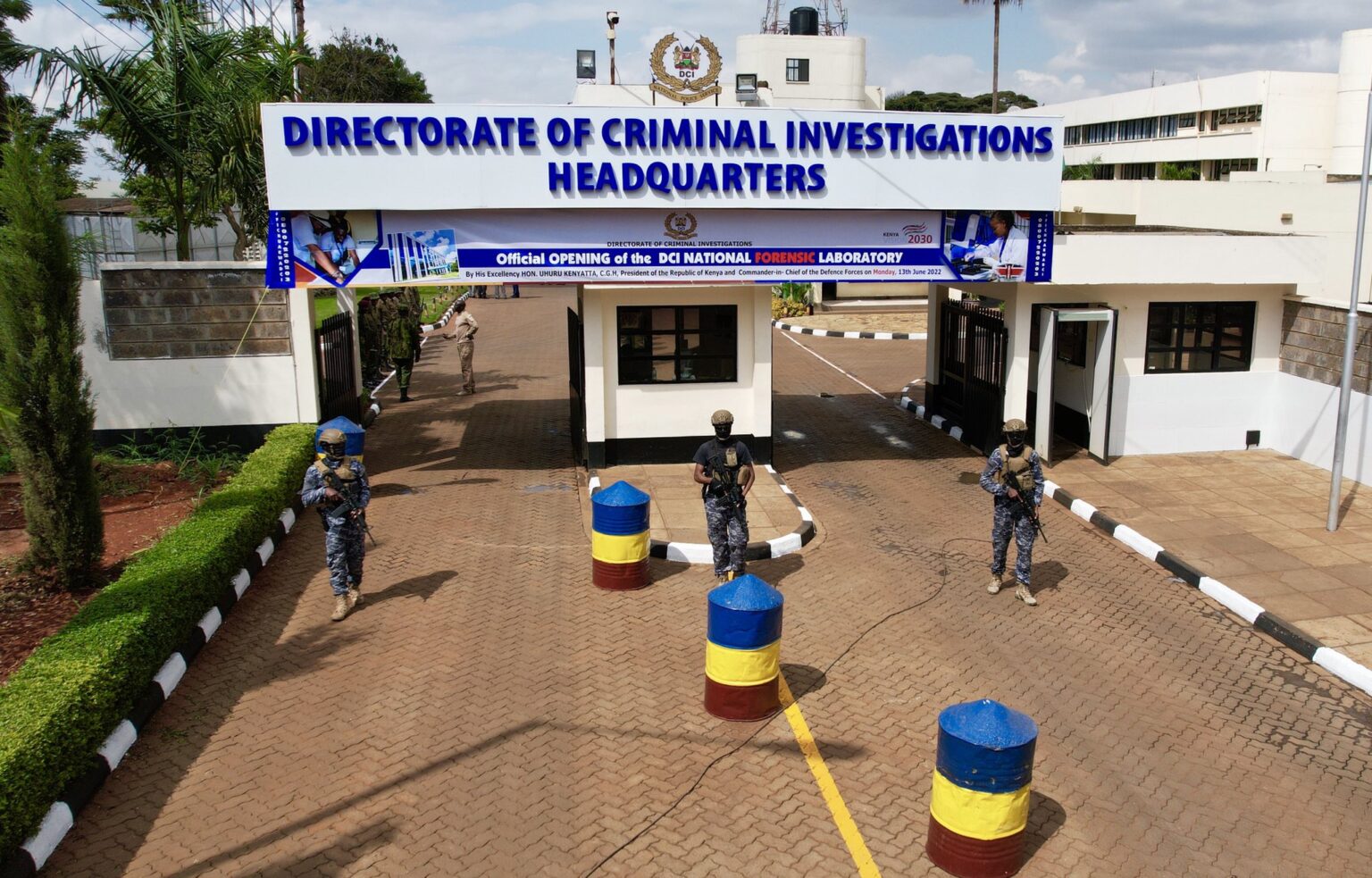News
From Status to Handcuffs: How Social Media Posts Are Leading Detectives to Criminals

Social media has become a cornerstone of mainstream communication, allowing sharing of information, connection and self-expression.
Even as Apps like WhatsApp, TikTok, Facebook and Instagram provide users with platforms to connect and share their lives, police detectives also get a lot of information about planned or alreadycommitted crimes, and even crucial information about suspects’ movements and behaviour.
In one of the latest cases, Directorate of Criminal Investigations (DCI) oicers on Tuesday arrested two female suspects in Kisumu and recovered a firearm after one of them posted on her WhatsApp status a photo of herself brandishing a Canik pistol, while warning that any man who dared dump her would face severe consequences.
Oicers from DCI’s Crime Research and Intelligence Bureau (CRIB) tracked down and arrested Sharon Auma and Nancy Atieno Obura, and recovered the pistol illegally in their possession.
“Detectives swooped into Awasi town and apprehended Sharon. Upon questioning, she led oicers to a rented two-bedroom house belonging to her friend, and now co-accused, Nancy Atieno Obura,” the DCI said.
Locating suspects
They searched the house and the pistol in question, with an empty magazine, was found wrapped in clothes and stashed in a basin under the bed.
“Also recovered is a fake motorcycle number plate bearing the number KMGG 805M. Detectives are pursuing more leads to arrest more suspects in connection to the firearm,” the DCI said.
Open Source Intelligence (OSINT), the practice of collecting and analysing publicly available data, has been used by detectives who use various tools and techniques to sift through vast amounts of data in order to gather evidence, uncover leads and even strengthen cases.
Such social media investigations are not just about reviewing public posts but also involve employing techniques to identify patterns, uncover hidden information, map movement of suspects, build strong cases and also solve crimes.
One of the processes involved in such probes is geolocation, the process of identifying the geographical location of the device and the person of interest.
In the case of Kisumu, the suspect was geolocated through her phone. The process involves a combination of techniques including cellular tower triangulation, IP address tracking, GPS, and Wi-Fi triangulation.
According to experts, most social media platforms have geotagged posts that can easily reveal locations where crimes were committed or criminals are.
“Location tags can enable detectives to identify patterns in a suspect’s routine, anticipate their movements and even confirm their connections to a crime under investigations,” the source said.
He added that corroboration of evidence is also key. It involves acquiring additional evidence that strengthens or confirms the initial evidence, especially in criminal cases.
“It is not just about giving validity of weak evidence, but about reinforcing and supporting credible evidence,” the source added.
The platforms also have a lot of data that can help detectives establish shared networks, hidden relationships, and connections between suspects and their accomplices and even the victims. This is possible through analysing information about comments, mutual friends, and public group memberships. “These connections can help detectives understand how suspects could be involved in certain criminal activities and also closely monitor unfolding events,” he added.
Kisumu suspect shared a photo of herself brandishing a Canik pistol on her WhatsApp status, warning that any man who dared dump her would face severe consequences
Open Source Intelligence, analyses publicly available data, to sift through vast amounts of data in order to gather evidence, uncover leads and even strengthen cases
Kenya Insights allows guest blogging, if you want to be published on Kenya’s most authoritative and accurate blog, have an expose, news TIPS, story angles, human interest stories, drop us an email on [email protected] or via Telegram
-

 Grapevine2 weeks ago
Grapevine2 weeks agoRussian Man’s Secret Sex Recordings Ignite Fury as Questions Mount Over Consent and Easy Pick-Ups in Nairobi
-

 News1 week ago
News1 week agoTHE FIRM IN THE DOCK: How Kaplan and Stratton Became the Most Scrutinised Law Firm in Kenya
-

 Investigations1 week ago
Investigations1 week agoMulti-Million Dollar Fraud: Three Kenyans Face US Extradition in Massive Cybercrime Conspiracy
-

 Economy1 week ago
Economy1 week agoIran Demands Arrest, Prosecution Of Kenya’s Cup of Joe Director Director Over Sh2.6 Billion Tea Fraud
-

 Business1 week ago
Business1 week agoA Farm in Kenya’s Rift Valley Ignites a National Reckoning With Israeli Investment
-

 Africa2 weeks ago
Africa2 weeks agoFBI Investigates Congresswoman Ilhan Omar’s Husband’s Sh3.8 Billion Businesses in Kenya, Somalia and Dubai
-

 Grapevine4 days ago
Grapevine4 days agoA UN Director Based in Nairobi Was Deep in an Intimate Friendship With Epstein — He Even Sent Her a Sex Toy
-

 Politics2 weeks ago
Politics2 weeks agoSifuna, Babu Owino Are Uhuru’s Project, Orengo Is Opportunist, Inconsequential in Kenyan Politics, Miguna Says

















